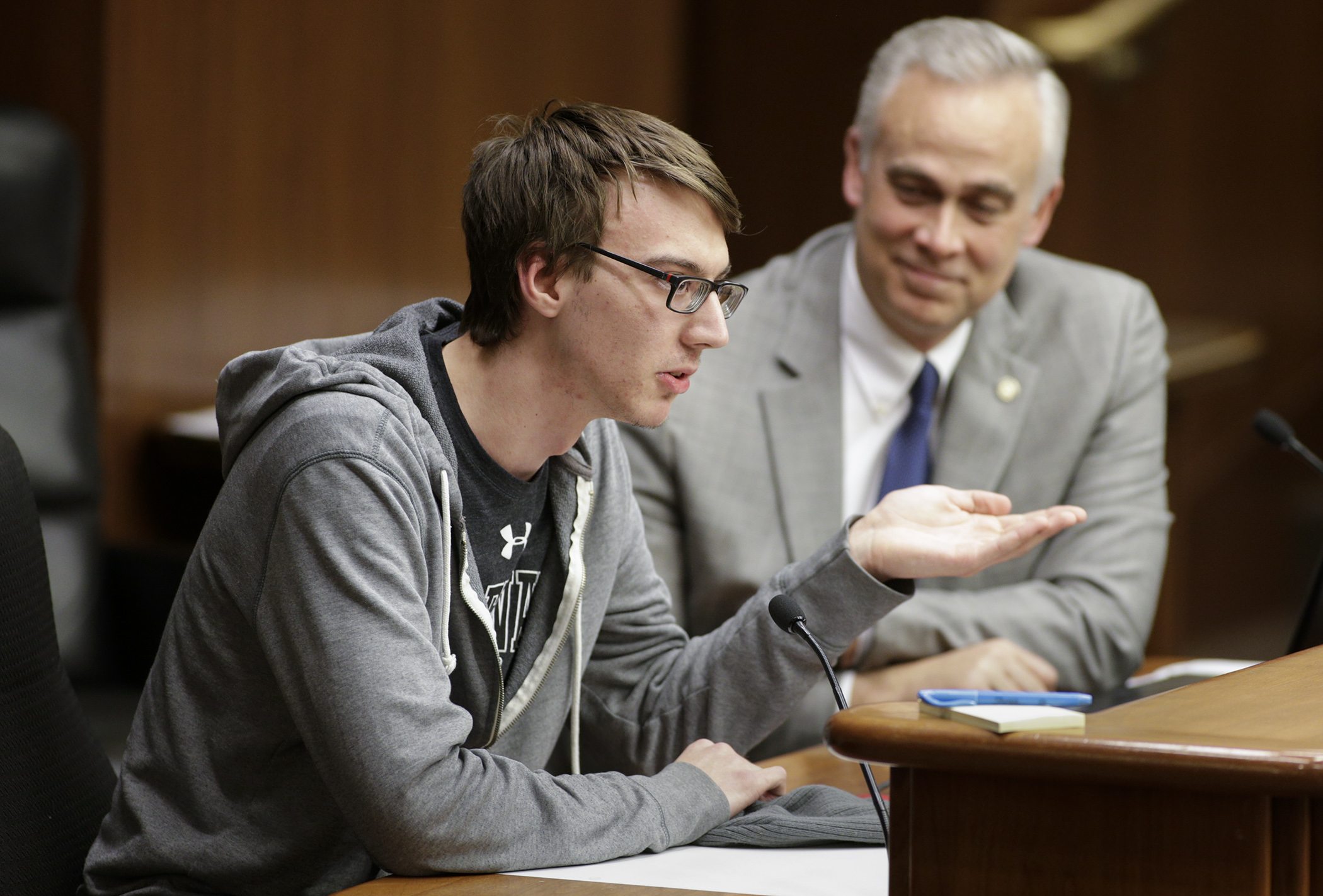Proposed post-secondary programs for students with disabilities offer opportunity

Students with intellectual disabilities could see increased post-secondary opportunities in coming years.
Under HF2153, sponsored by Rep. Brian Daniels (R-Faribault), Minnesota State would offer academic programs for students with intellectual and developmental disabilities at two college campuses beginning in the 2018-19 school year.
Colleges would be selected by their ability to offer programming using existing facilities, with a goal of enrolling at least 15 incoming students per year.
“This will make a big difference in the lives of students with intellectual disabilities,” said Rep. Tony Albright (R-Prior Lake). “The reality is that these students have very limited options after high school. There is a real lack of understanding of the potential that they have.”
The House Education Finance Committee held the bill over Wednesday for possible omnibus bill inclusion. It has no Senate companion.
Programs would provide full-time, two-year residential college experiences offering courses that develop life skills in a student's chosen field of study. It would also provide internship or other skills-based experiences to prepare students for meaningful employment after completion.
“We need to provide students with the tools they need to be active participants in society and let them know we believe in their ability to succeed,” Albright said.
A student who successfully completes a program would be awarded an appropriate academic credential.
An annual program report would be due the Legislature.
In addition to academia, programs would allow students to engage in campus communities, including peer support and other engagement activities.
Favorable of its intent, testifiers expressed concern with promoting a one-size-fits-all approach, saying some community colleges already offer occupational skills programs for students with disabilities.
“Our goal is to increase access to all educational aspects and institutions,” said Mary Benson, who teaches a nine-month occupational skills program at Ridgewater College that focuses on independent living skills.
The bill would also request the University of Minnesota adopt a similar program. Due to the university’s constitutional autonomy, the state cannot require it to adhere to the potential change.
Related Articles
Search Session Daily
Advanced Search OptionsPriority Dailies
Legislative leaders set 2026 committee deadlines
By Lisa Kaczke Legislative leaders on Tuesday officially set the timeline for getting bills through the committee process during the upcoming 2026 session.
Here are the three deadlines for...
Legislative leaders on Tuesday officially set the timeline for getting bills through the committee process during the upcoming 2026 session.
Here are the three deadlines for...